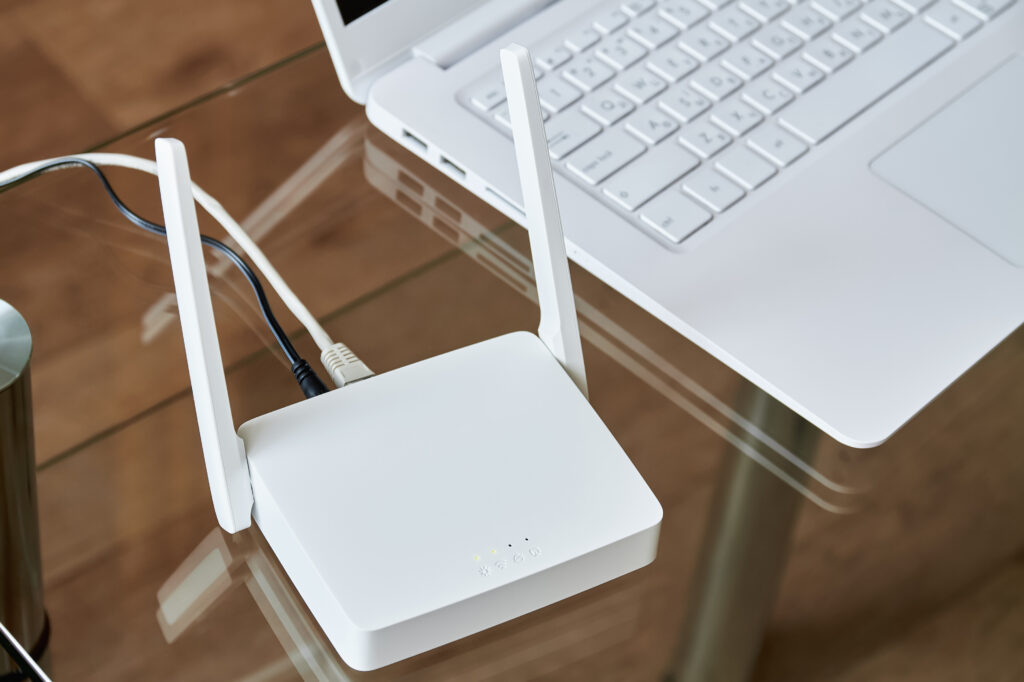The concept of home connectivity pivots around a central piece of technology: the internet box for home. This essential device, known more technically as a modem or router, acts as the gateway to the vast world of the internet, enabling everything from video streaming to smart home integrations. With so many options available, selecting the right internet box for home can be daunting. However, with a clear understanding and well-researched choices, you can streamline your decision-making process and secure the best connectivity solution for your needs.
What is an Internet Box for Home?
An internet box for home, commonly referred to as a modem, router, or a combination of both, serves as a critical component in establishing an internet connection within residential spaces. The modem connects your home to your Internet Service Provider (ISP), while the router distributes this connection across devices within your home network. In some setups, these functions are combined into a single device, offering both the functionalities of a modem and a router.

Key Considerations When Choosing an Internet Box
When selecting the best internet box for home, keep the following considerations in mind:
- Compatibility: Ensure the internet box is compatible with your ISP and the type of internet connection you have (DSL, cable, fiber, etc.).
- Speed and Bandwidth: Look for devices that support the maximum speed offered by your ISP. Consider future-proofing with higher throughput rates if you plan on upgrading your service soon.
- Coverage Area: Evaluate the size of your home and choose an internet box with a suitable range. Mesh networks might be ideal for larger homes to eliminate dead zones.
- Security Features: Opt for devices equipped with robust security protocols like WPA3 and built-in firewalls to protect your network.
- Additional Features: Consider boxes with extra features, such as parental controls, guest networks, and smart home compatibility, to enhance user experience.
Why It Matters
Choosing the right internet box for home doesn't just mean improved speeds; it’s about ensuring seamless connectivity for all your devices, safeguarding your data, and preparing your home for increasing digital demands. A suitable internet box can lead to a noticeable improvement in streaming, gaming, and overall browsing experiences. Moreover, advanced security features protect your family's private information from cyber threats, which are ever-evolving in the digital landscape.
Expert Insights and FAQs
What is the difference between a router and a modem?
A modem connects your home to the internet service provider and translates the ISP signals into usable internet for household use. A router, on the other hand, distributes this internet connection among devices in your home.
Do I need to buy my own internet box, or should I rent one from my ISP?
While renting a modem/router from your ISP might seem convenient, purchasing your own device often provides better long-term savings and typically includes more advanced features.
How often should I upgrade my internet box?
Technological advancements mean that you might consider upgrading your internet box every 3-5 years, especially if you experience connectivity issues or your current device doesn't support higher speeds offered by your ISP.
How do mesh networks work, and are they worth it?
Mesh networks consist of multiple nodes that work together to extend Wi-Fi coverage throughout your home. They are particularly beneficial for large homes or homes with complex layouts where traditional routers might struggle to provide consistent coverage.
FAQ: Choosing the Right Internet Box for Your Home
The choice of an internet box for home can significantly affect your internet experience. Below are some common questions and thorough answers to help you make an informed decision.
What factors should I consider when choosing an internet box for my home?
Speed Requirements
- Internet Plan: Choose a box that supports the maximum speed offered by your internet service plan. If you have a high-speed fiber plan, opt for a box that can handle gigabit speeds.
- Usage: Consider your internet usage patterns - streaming, gaming, remote work, and smart home setups require higher speeds.
Coverage Area
- Home Size: Larger homes or multi-story buildings may require a router with greater range or additional mesh points to avoid dead zones.
- Interference: Consider the potential for interference from other electronics and choose a box capable of reducing signal overlap.
Technology Standards
- Wi-Fi 6/6E: These newer standards offer improved speed, capacity, and reduced latency compared to older Wi-Fi 5.
- Dual-band or Tri-band: Provides better performance by reducing congestion, especially in busy households.
Expandability and Compatibility
- Ports and Connections: Ensure the box has enough Ethernet ports, USB connections, and supports necessary peripherals.
- Compatibility with ISPs: Ensure the box is compatible with your internet service provider to avoid connectivity issues.
Security Features
- Built-in Security: Look for boxes with integrated firewalls, automatic updates, and protective measures against malware.
- Parental Controls: Essential for families wanting to control and monitor internet usage.
Future-Proofing
- Support for Smart Devices: If your home has or will have many IoT devices, consider an internet box that can handle many simultaneous connections.
- Upgradeable Firmware: Ensure the box receives regular updates for new features and improvements.
How does an internet box for home revolutionize connectivity?
An internet box dramatically enhances network performance and connectivity by offering:
- Improved Network Management: Advanced settings allow users to prioritize bandwidth usage, allocate resources efficiently, and monitor network activity.
- Enhanced Coverage: Modern boxes support mesh networking, ensuring robust coverage throughout larger homes or challenging environments.
- Increased Capacity: Latest technologies support more simultaneous connections, perfect for smart homes with numerous devices.
- Seamless Experience: With built-in Quality of Service (QoS) features, these devices ensure that bandwidth-intensive applications like streaming or gaming run smoothly without interruption.

Where can I find the best internet box for home?
Online Retailers
- Amazon, Best Buy, Newegg: These platforms often have extensive customer reviews and ratings to inform your choice.
- Manufacturer Websites: Sites like TP-Link, Netgear, or Asus offer detailed specifications and direct purchase options.
Local Electronics Stores
- Visit local chain stores such as Best Buy or smaller independent retailers to get hands-on experience and personalized advice.
Internet Service Providers
- Many ISPs offer compatible internet boxes when you subscribe to their service, often providing discounts or rental options.
Consumer Review Sites
- Check platforms like CNET, TechRadar, or Wirecutter for expert reviews and comparisons.
What are the advantages of using the top-rated internet boxes for homes?
- Reliability and Stability: Top-rated models come with advanced hardware and software solutions that ensure consistent uptime and fewer interruptions.
- Enhanced Security: They often include the latest security protocols, frequent updates, and built-in protections to safeguard your network against threats.
- Superior Performance: High-end models deliver faster speeds, reduced latency, and improved management of simultaneously connected devices.
- User-friendly Interfaces: They offer intuitive interfaces and mobile apps for easy setup, monitoring, and adjustments to your network.
- Comprehensive Support: Leading brands provide excellent customer support, including installation guides, FAQs, and technical assistance whenever needed.
By considering these factors and leveraging available resources, you can find an internet box that meets your household's connectivity needs, ensuring a seamless and efficient internet experience.
Conclusion
In summary, choosing the right internet box for home revolves around understanding your household's connectivity needs, evaluating device features, and ensuring compatibility with your ISP. By carefully considering these factors, you can enhance your home internet experience, ensuring faster speeds, broader coverage, and stronger security. As digital demands grow, investing in an optimal internet box for your home becomes an essential step towards achieving seamless and secure connectivity.



